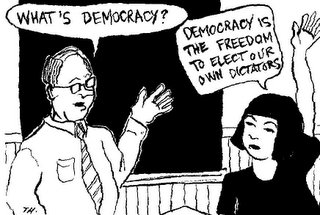I am on leave! What a glorious state to be in. Being on leave means that I have some time to think. That may sound like a strange statement for a person who is employed in an academic post. My time seems to be occupied with far more menial and functional tasks than real thought. I write things, I organise things, I work with people. These are all functions that require quite a bit of time and energy, and sadly, not that much thought.
Anyhow, I am on leave and I have taken to thinking. As Megan's grandfather used to say "sometimes I sits and thinks, sometimes I just sits".
Over the last year I have had the good fortune to be privy to many meetings and encounters with varying arrays of the spectrum that is the people called Methodists. I have sat in meetings with Bishops, trained Circuit Superintendents, attended Conferences and SYNODS, preached in local congregations, visited with ordinary members, and listened to the stories and complaints of a wide variety of people, powerful and the supposedly disempowered. One of the most common complaints, among those who have power, and those who believe they have none, has to do with the governance of the Church. Many bemoan the disfunction of our 'democratic' system of making decisions. Debates such as those on the equalisation of stipends and Church's response to persons of a same-sex orientation exemplified and showcased the will and methods of those who make and enforce these decisions.
Most Methodists are under the false impression that these processes are democratic. I think that in large part this misunderstanding of our system of governance is a significant cause of much of the frustration among both the members and elected officials of the Church. Here is a common definition of democracy. Democracy is,
"government by the people, exercised either directly or through elected representatives"
(http://www.opb.org/education/coldwar/berlincrisis/glossary/)
The key here is
governance by the people.
I am not aware of many active democracies in the world today. Certainly the self proclaimed evangelists of democracy, the United States of America and the United Kingdom, are very far from allowing the voice of the people to dictate the laws and policies of their respective governments! In fact quite the opposite is true. These two powerful nations have a very dictatorial and authoritarian system of rule.
Noam Chomsky (
http://www.chomsky.info/), famed MIT professor, suggests that the form of governance most common in the USA and UK is what is commonly known as a polyarchy. This term, which describes a particular political theory, was espoused and articulated by Robert Dahl. A polyarchy
"has seven attributes: 1) elected officials; 2) free and fair elections; 3) inclusive suffrage; 4) the right to run for office; 5) freedom of expression; 6) alternative information; and 7) associational autonomy. Essentially this means politicians making decisions, with ratification by the public." (http://en.wikipedia.org/wiki/Polyarchy)
The key here is the phrase "
politicians making decisions, with the ratification by the public".
It would seem to me that a true democracy breeds servant leaders, persons who's desire is to find creative and efficient ways of enacting the will of the people. Whereas polyarchies breed masters, persons who try to find ways to have their will enacted in creative ways by the people.
I could be wrong. However, if I am right it is no surprise that there are many unhappy servants, and unhappy masters, in what should be a servant organisation... Perhaps we should strive to elect more servants and expose more masters - that is, if we do truly want democracy?

.
.
.




 .
.
 .
.




